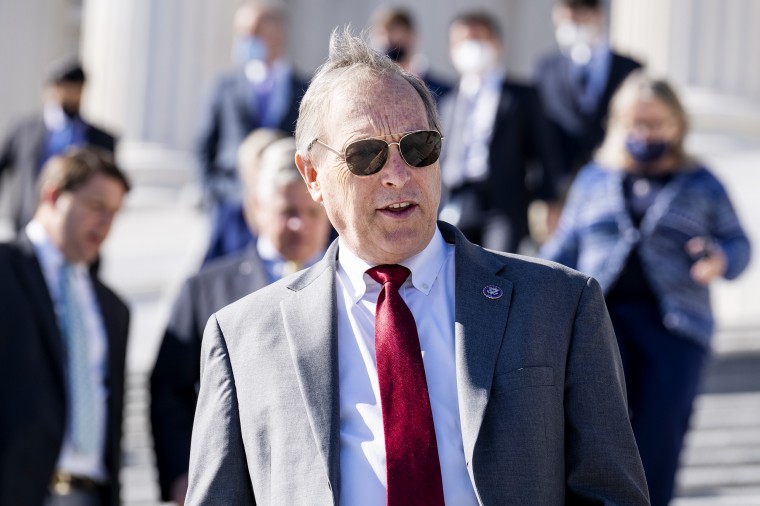For months, Rep. Andy Biggs’ name has come up in connection with the Jan. 6 investigation, though this week, it was a bit of a surprise.
During Tuesday’s hearing of the Jan. 6 committee, Arizona House Speaker Rusty Bowers was delivering sworn testimony about those who pressured him to help corrupt the election results. After talking about his difficult interactions with Trump attorney John Eastman, the line of questioning took a brief detour. The Arizona Republic’s EJ Montini explained:
Bowers was asked if he’d been contacted by Biggs and asked to decertify Arizona presidential electors. By this time Bowers was more convinced than ever that there was no legal justification for doing so. Bowers said of Biggs, “He asked if I would sign on both to a letter that had been sent from my state or that I would support the decertification of the electors, and I said I would not.”
At that point, the hearing moved on, but it was nevertheless a memorable moment: A prominent Republican congressman — the chair of the far-right House Freedom Caucus — personally contacted his home state’s House Speaker in the hopes that Bowers would help subvert the results of a free and fair American election.
Democratic Rep. Ruben Gallego, one of Biggs’ colleagues from the Arizona delegation, noted that the Republican congressman was the former president of the Arizona Senate — so he knew that Bowers couldn’t legally take such steps.
“Knowing that Speaker Bowers has no legal recourse to replace electors, what was [Biggs] doing?” Gallego asked. “He was asking him to break the law.”
The Bowers/Biggs conversation in question was not an isolated incident. The state House Speaker also spoke with Biggs on a Dec. 21, 2020, videoconference, at which point the congressman reportedly pushed the idea that there was widespread election fraud — claims that have since been thoroughly discredited.
We also know about a strategy session then-White House chief of staff Mark Meadows held — also on Dec. 21, 2020 — in which Biggs was in attendance.
Biggs was also sending politically provocative texts to Meadows as early in the process as Nov. 6, 2020 — three days after Election Day, but before the race was called — about state legislatures appointing their own electors.
What’s more, the committee has told Biggs, “[R]ecent information from former White House personnel has identified an effort by certain House Republicans after January 6th to seek a presidential pardon for activities taken in connection with President Trump’s efforts to overturn the results of the 2020 presidential election. Your name was identified as a potential participant in that effort.”
It was against this backdrop that the bipartisan select committee invited Biggs in May to voluntarily answer questions. He refused. Soon after, the panel subpoenaed the Arizona Republican, but at least for now, he’s refused to honor the legal summons, too.
When Biggs’ name came up on Tuesday, it was a reminder that these questions about what Biggs did, when, and with whom aren’t likely to go away anytime soon.

